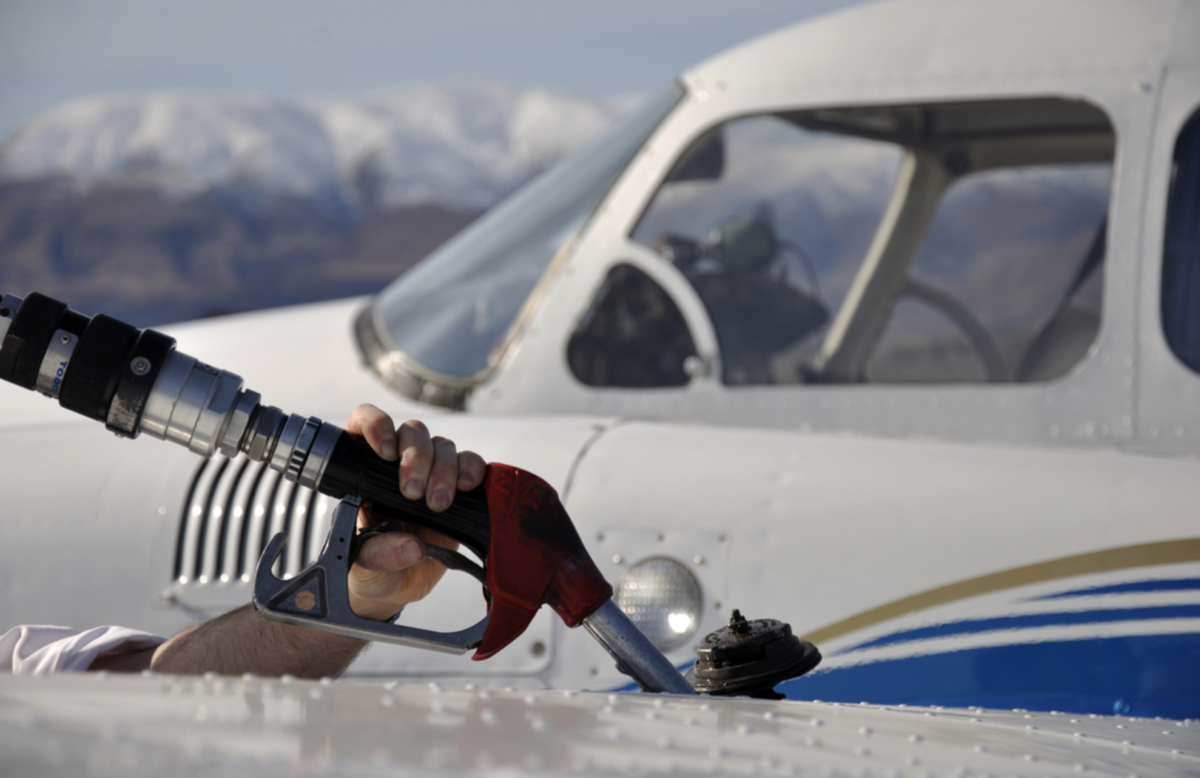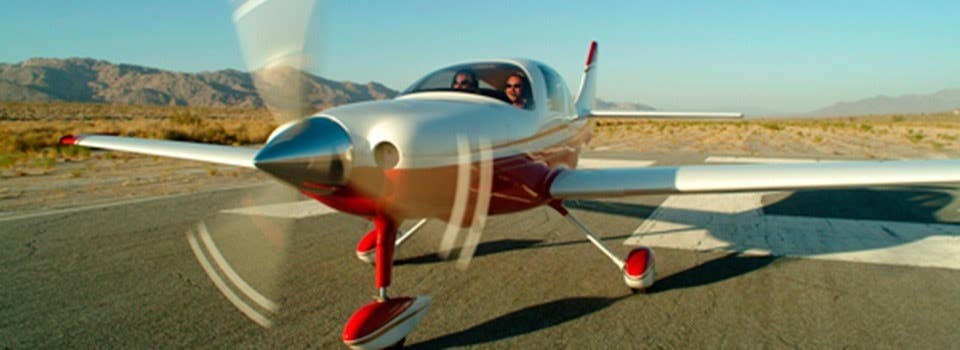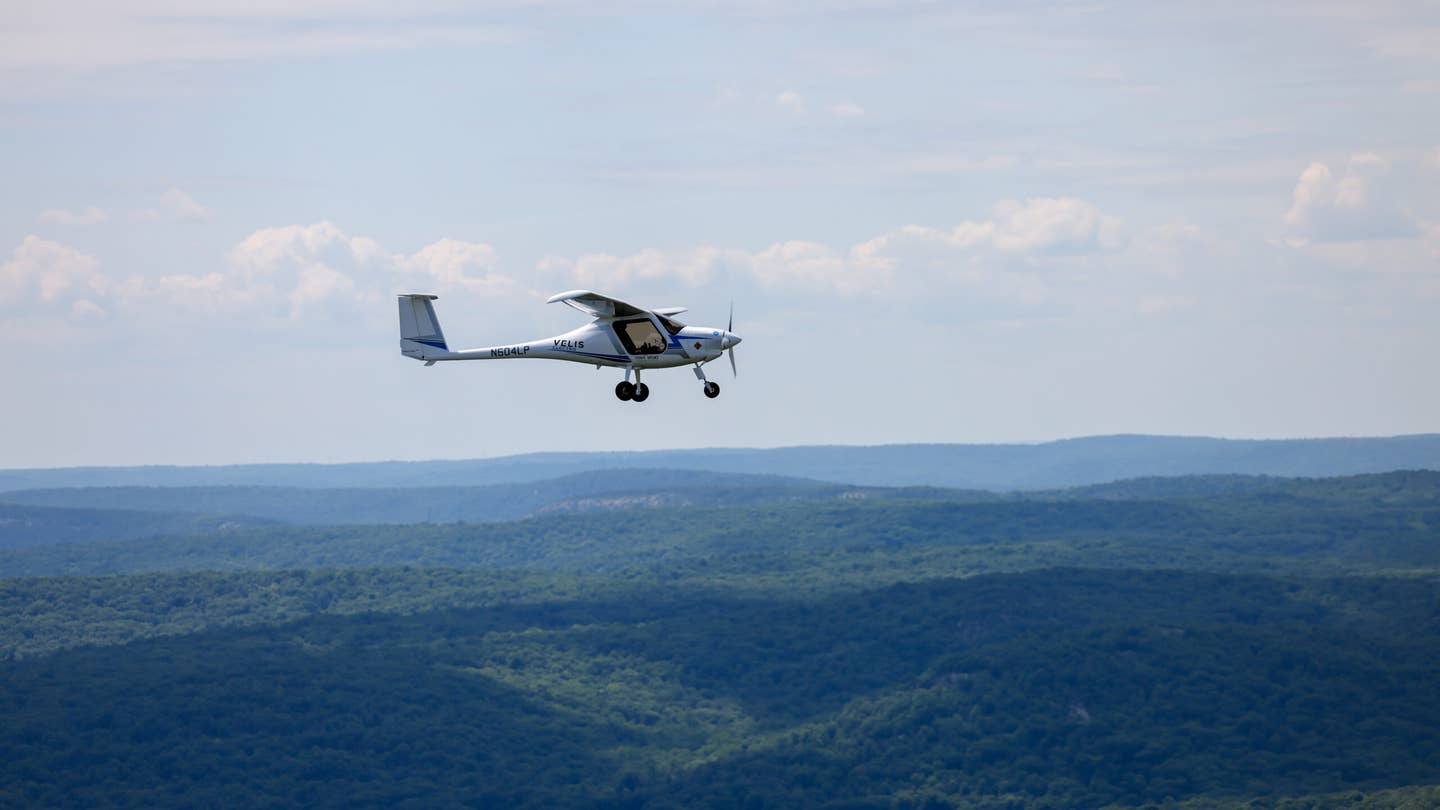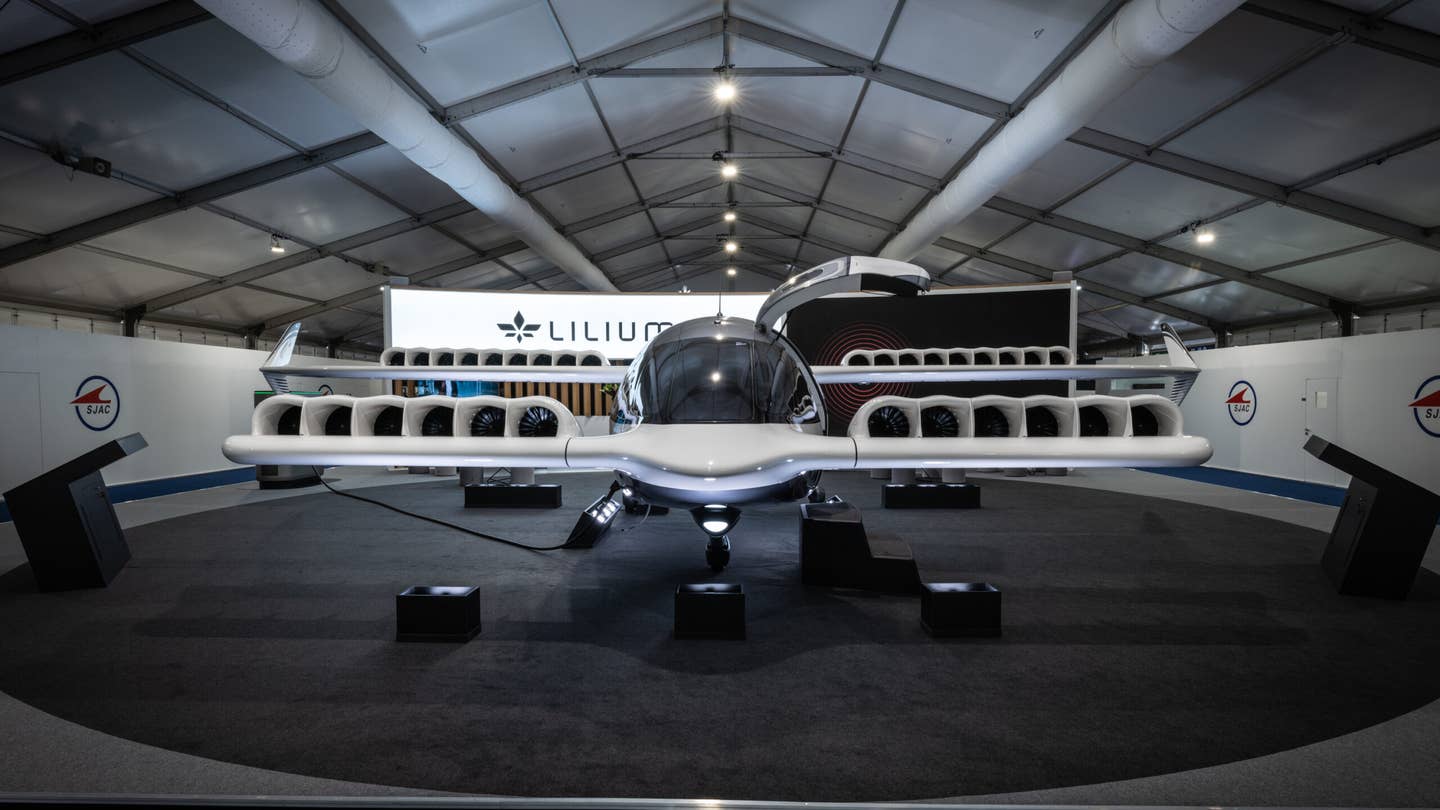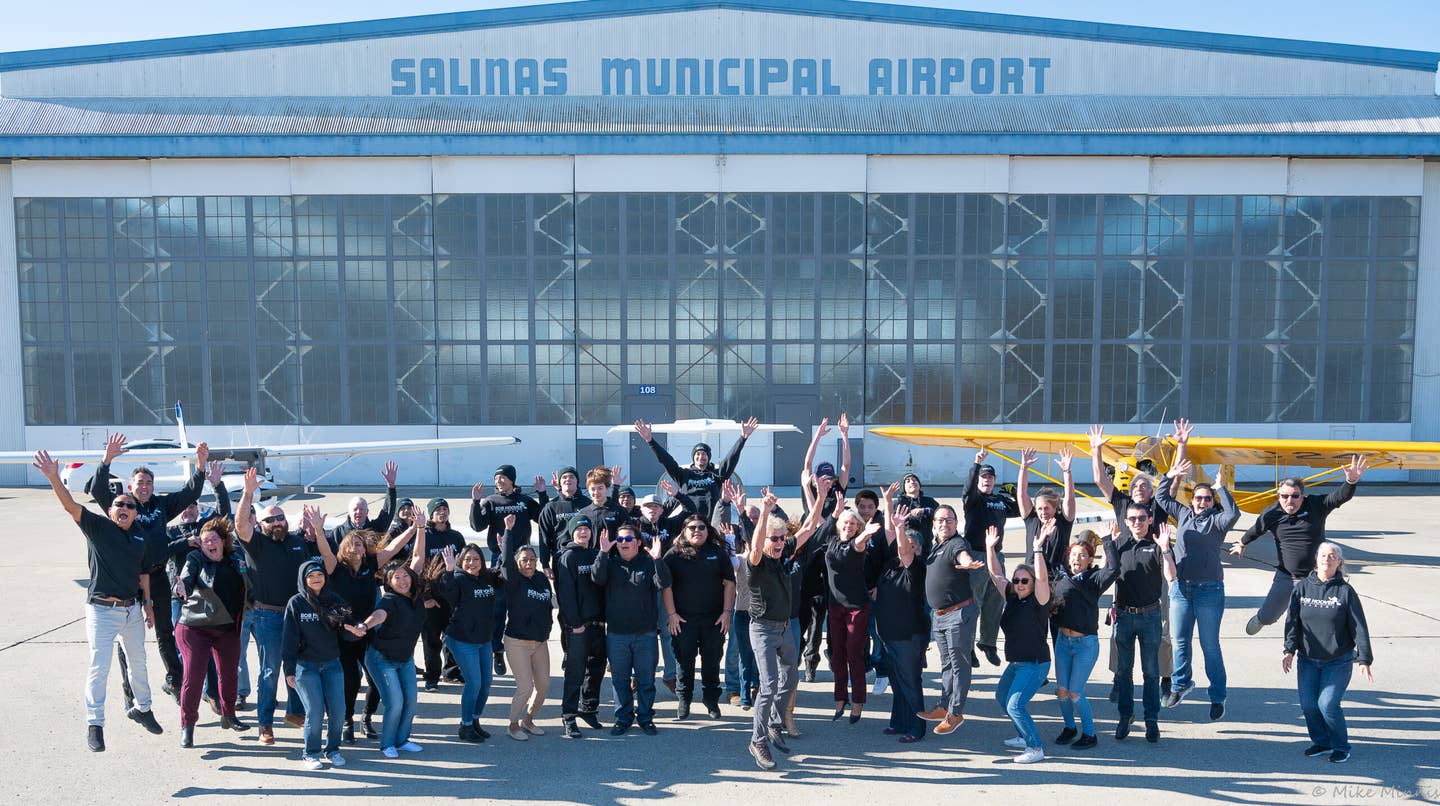U.K. Government Allots $10M for Vertical Aerospace Electric Air Taxi Propeller Project
The manufacturer has now received a total of $47 million in British government grant funding, which it will use to develop its next-generation propellers.
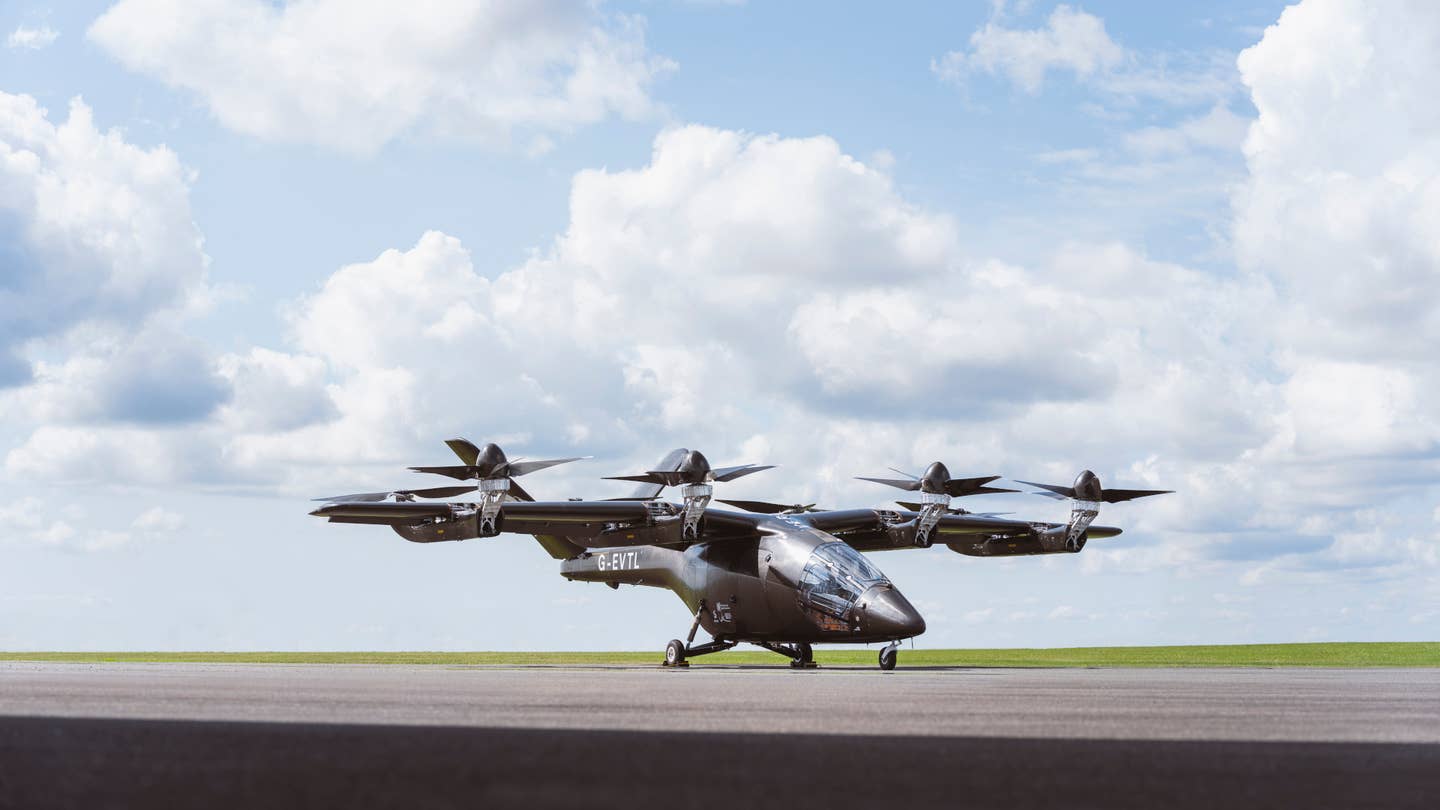
Vertical Aerospace is developing next-generation propellers for its flagship, four-passenger eVTOL air taxi. [Courtesy: Vertical Aerospace]
Photo by Adam Gasson / Vertical Aerospace
Vertical Aerospace, a U.K.-based manufacturer of electric vertical takeoff and landing (eVTOL) air taxis that previously projected it could run out of money in September, now appears to be flush with cash.
The manufacturer last week said it received a $10 million grant from the U.K. government through the Aerospace Technology Institute (ATI) program, its fourth grant award through that initiative. The award brings Vertical’s total U.K. government grant funding to $47 million and follows founder and CEO Stephen Fitzpatrick’s personal commitment to provide another $50 million.
The company will use the money to develop next-generation propellers for the VX4, its flagship, four-passenger eVTOL air taxi. The propellers will be featured on Aircraft Two, a full-scale prototype in production that will build on its Aircraft One model.
Aircraft One is the company’s inaugural prototype that suffered a crash during uncrewed testing at Cotswold Airport (EGBP) in August. The accident damaged the model’s right wing and landing gear, and rendered it unusable for further flight testing.
“This exciting sustainable propeller project is a fantastic example of our commitment to our world-leading aviation sector, supporting high-skilled, high-paid jobs across the U.K. while developing technologies of the future,” said Nusrat Ghani, U.K. minister of state for industry and economic security. “When government and industry collaborate like this, we help our aerospace sector soar to new heights, leading the charge towards net-zero air travel by 2050.”
Vertical will head a consortium of U.K. technology organizations and research institutions, including the University of Glasgow, University of Bristol, Cranfield University, and Helitune, a helicopter monitoring specialist.
Of the more than $25 million being poured into the propeller project, Vertical said it received more than $10 million, or about half of the company’s eligible development costs. Another $4.5 million will be awarded to other consortium members.
According to Vertical, the new propellers will be lower in weight, inertia, and noise than its existing propellers and will be “delivered to a higher safety standard than any model currently on the market.”
“The project will see advancements in rotor technologies vital to the success of eVTOL aircraft developed here in the U.K., growing knowledge, skills and capability in the process,” said Mark Scully, head of propulsion and advanced systems technology for ATI. “Through this investment the ATI Programme is enabling the development of ultra-efficient and cross-cutting technologies.”
The award follows Fitzpatrick’s commitment to support Vertical with $50 million out of his own pocket. The company last week confirmed it has entered into an investment agreement with its founder and CEO, putting the promise to paper.
By its own estimate, Vertical risked running out of cash by September amid the fallout from its August crash and delays to its certification timeline, which over the years has been pushed from 2024 to 2026. The company reportedly missed a target to raise funding by December. Its previous raise of $205 million closed more than two years ago.
However, Vertical said Fitzpatrick’s contribution will extend its cash runway into mid-2025, with more funding potentially lined up pending the completed flight test campaign of Aircraft Two. Last month, it said the full-scale prototype was nearing completion at partner GKN Aerospace’s Global Technology Center in the U.K.
Aircraft Two is expected to be Vertical’s certification aircraft that it will use in for-credit type certification testing with the U.K. Civil Aviation Authority (CAA). In addition to the next-generation propellers, the updated design adds a revamped powertrain, refined flight control system, and battery packs designed to meet thermal runaway safety requirements. It will feature components made by certification partners Honeywell, GKN, Hanwha, Solvay, and Leonardo.
Vertical intends for Aircraft Two to complete a flight campaign and several public demonstrations this year. These are expected to include an appearance at the Farnborough International Airshow at Farnborough Airport (EGLF) in July, as well as flights to and from London Heathrow Airport (EGLL).
In March, Vertical received CAA design organization approval (DOA), a required step in the regulator’s type certification process. Only a handful of air taxi firms, including Germany’s Volocopter and Lilium, have obtained DOA from the European Union Aviation Safety Agency (EASA).
Like this story? We think you'll also like the Future of FLYING newsletter sent every Thursday afternoon. Sign up now.

Subscribe to Our Newsletter
Get the latest FLYING stories delivered directly to your inbox


